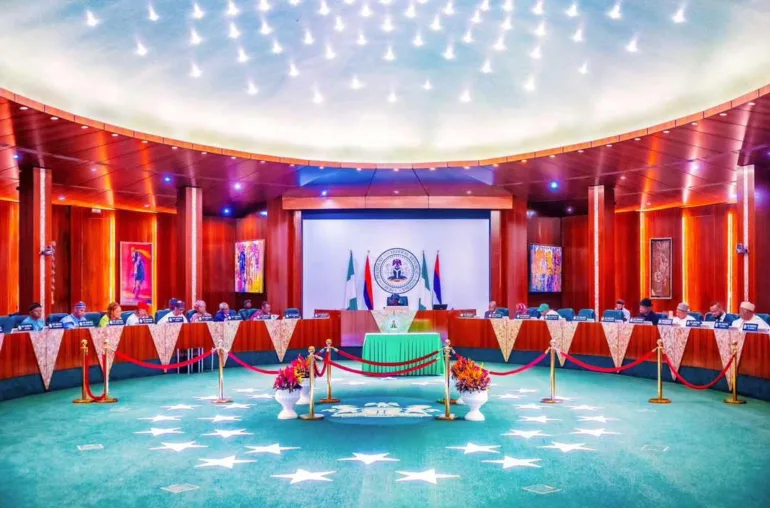President Bola Tinubu has approved the Renewed Hope Nigeria First policy, a new directive mandating all federal ministries, departments, and agencies (MDAs) to prioritize Nigerian-made goods, services, and expertise in all government procurement.
The Minister of Information and National Orientation, Mohammed Idris, announced the decision after Monday’s Federal Executive Council (FEC) meeting at the Presidential Villa in Abuja.
“This directive puts Nigeria at the centre of every kobo the government spends,” Idris said, adding that an Executive Order to give the policy full legal backing will be issued within days.
Modeled on former U.S. President Donald Trump’s “America First” doctrine, the Nigeria First policy is designed to empower local industries, reduce reliance on imports, and anchor government spending on domestic capacity.
“Going forward, any government business must place Nigerians first,” Idris said. “If a viable local option exists, there is no justification for importing.”
The FEC has endorsed the policy, and the Attorney-General of the Federation, Lateef Fagbemi, has been directed to prepare the corresponding Executive Order to enshrine the new rules in law.
As part of the implementation plan, the Bureau of Public Procurement (BPP) has been directed to revise federal procurement guidelines to favor local manufacturers and service providers. It will also establish a Local Content Compliance Framework and maintain a registry of vetted Nigerian suppliers that consistently meet quality standards. Furthermore, the BPP will reassert its authority over the deployment of procurement officers across all MDAs to ensure strict adherence.
Under the new rules, MDAs are prohibited from purchasing any foreign goods or services that are already available locally—unless granted a written waiver by the BPP.
In cases where no local alternative exists, contracts must include provisions for technology transfer, local production, or skills development. This mirrors provisions in the Sugar Master Plan, which incentivizes backward integration.
All MDAs have been given an immediate deadline to review and revise their 2025 procurement plans to align with the policy.
“No procurement of foreign goods or services already available in Nigeria shall proceed without justification and a formal BPP waiver,” the directive states. “Where no local option exists, procurement must support the transfer of technology, the growth of local industry, or workforce development.”
Idris emphasized that the overarching goal is to make government spending a direct investment in Nigerian people, businesses, and the broader economy.


